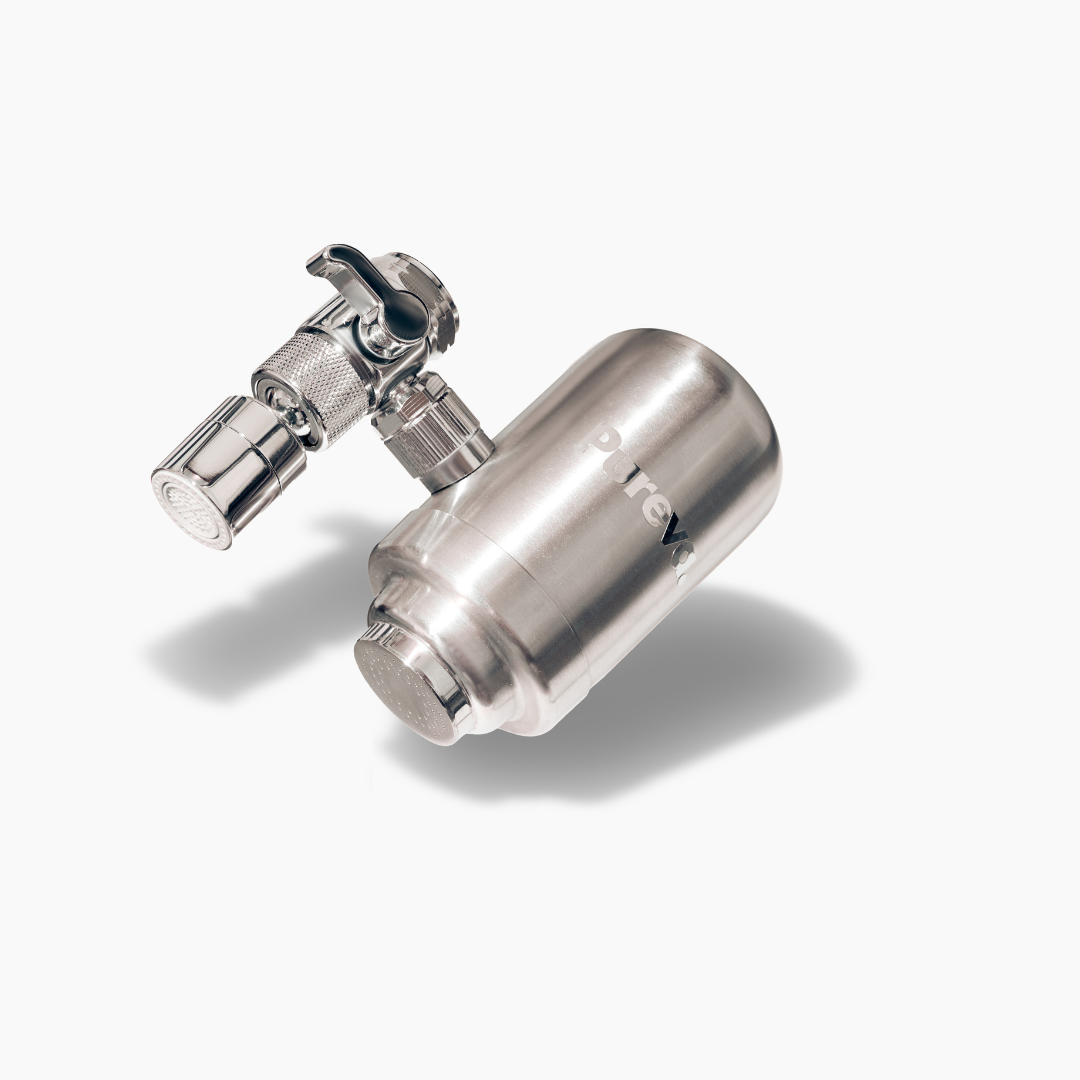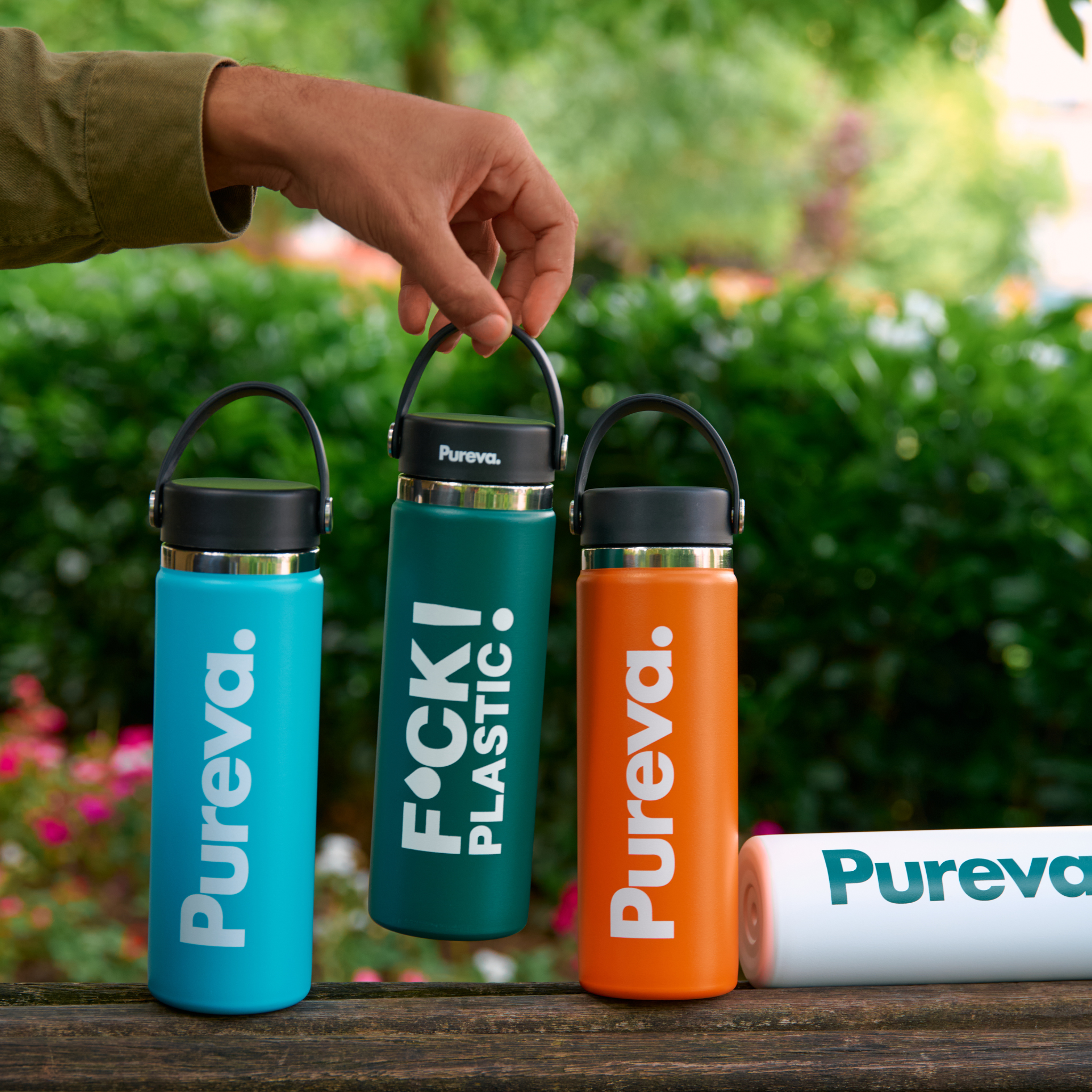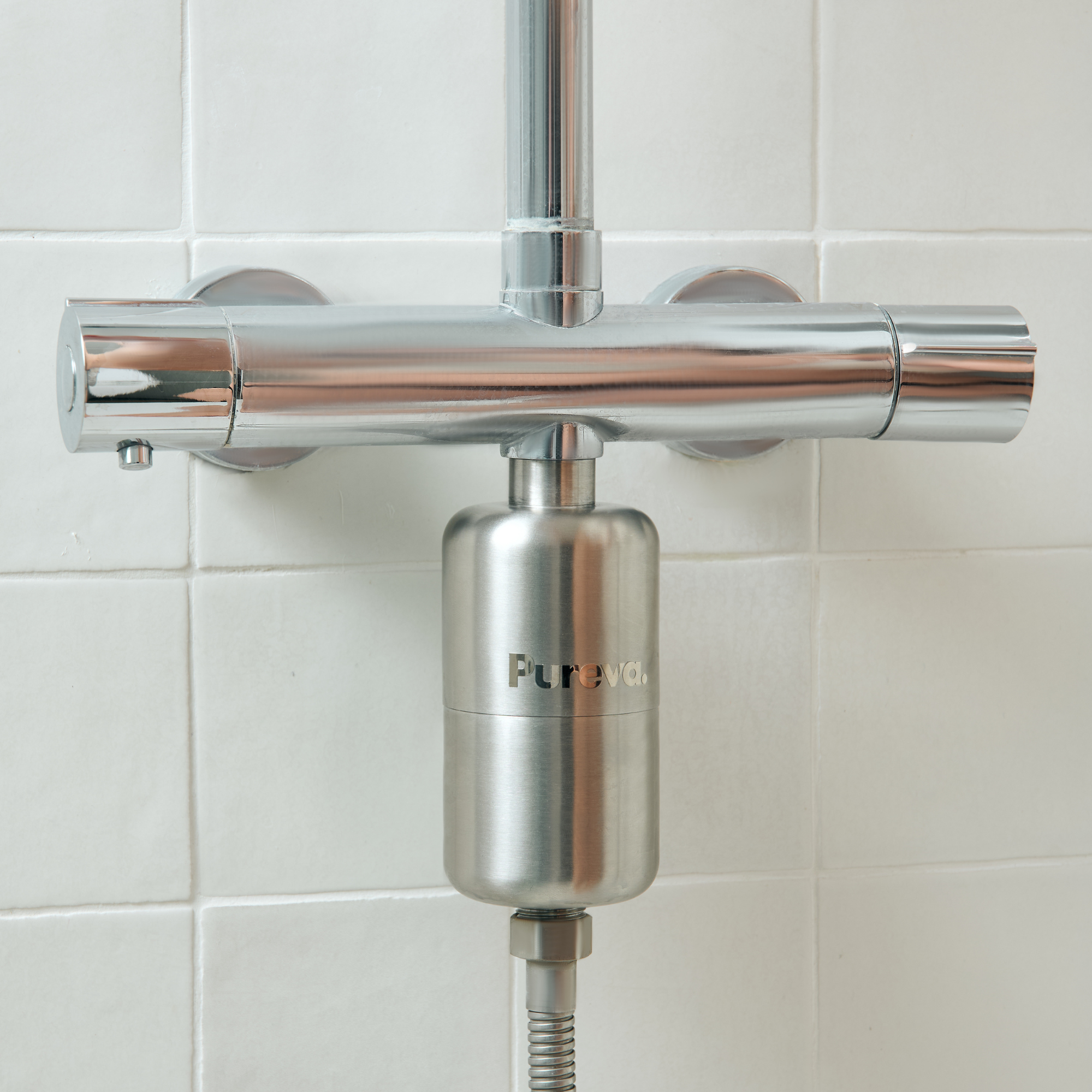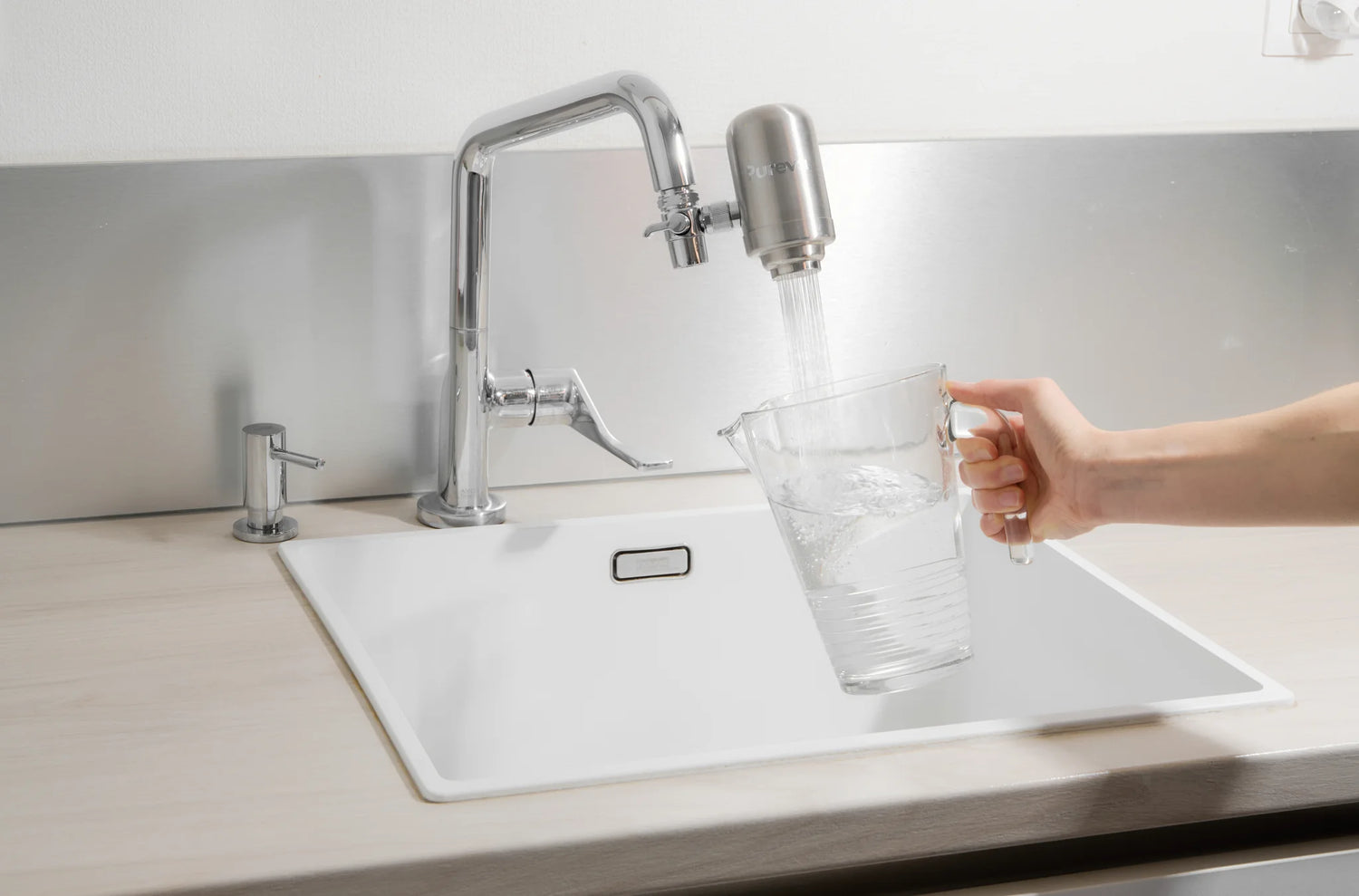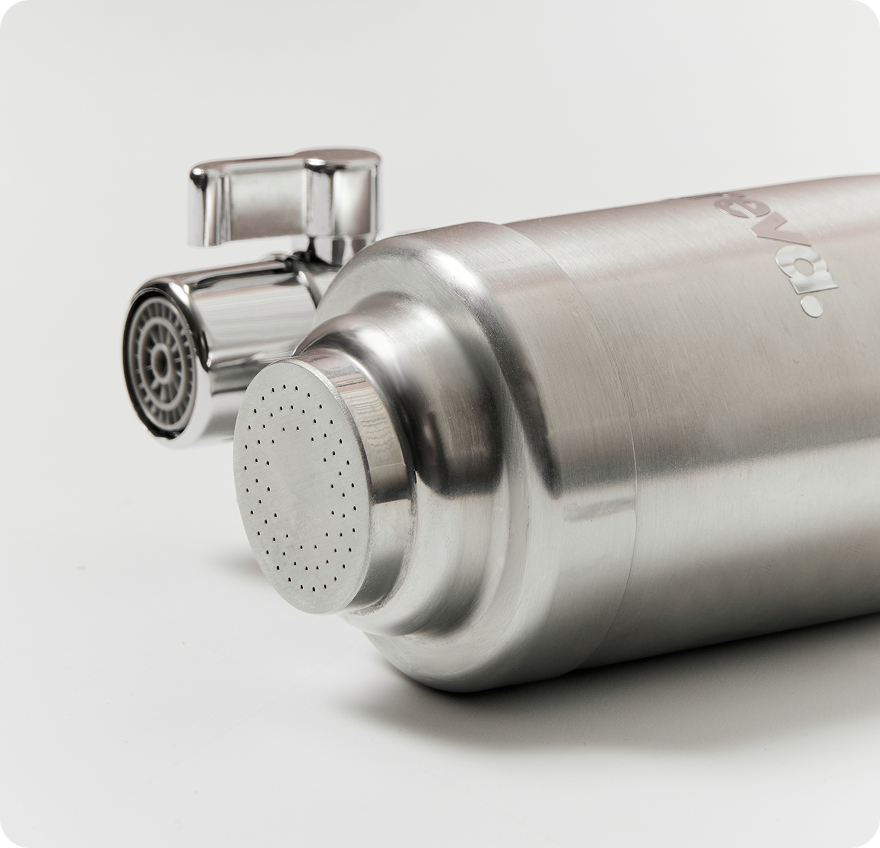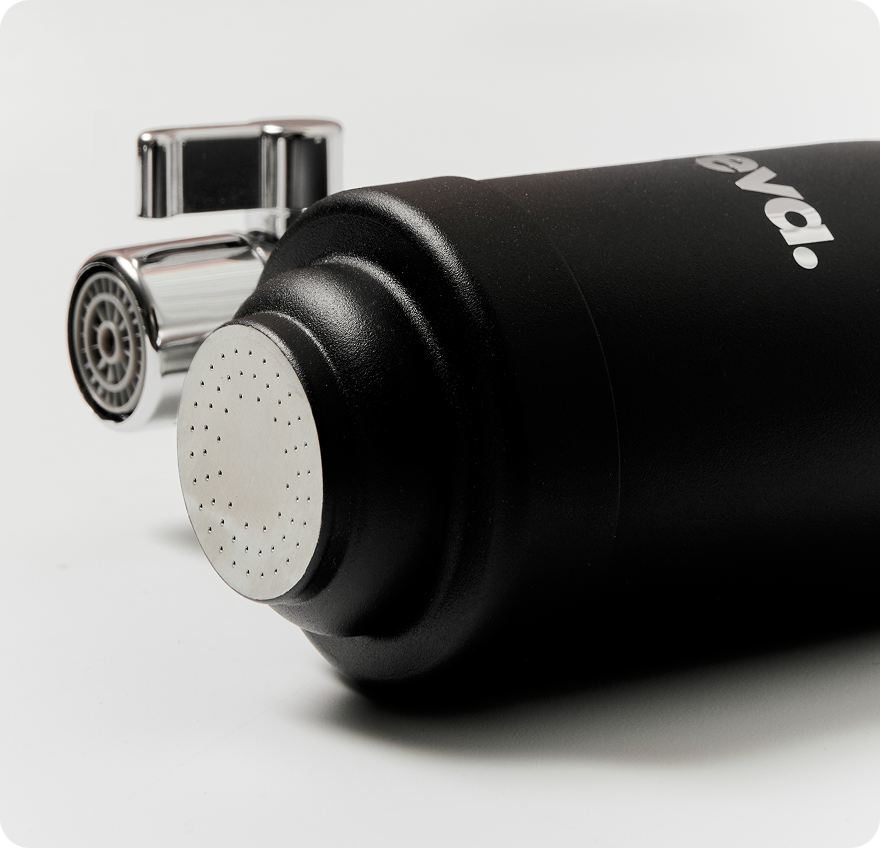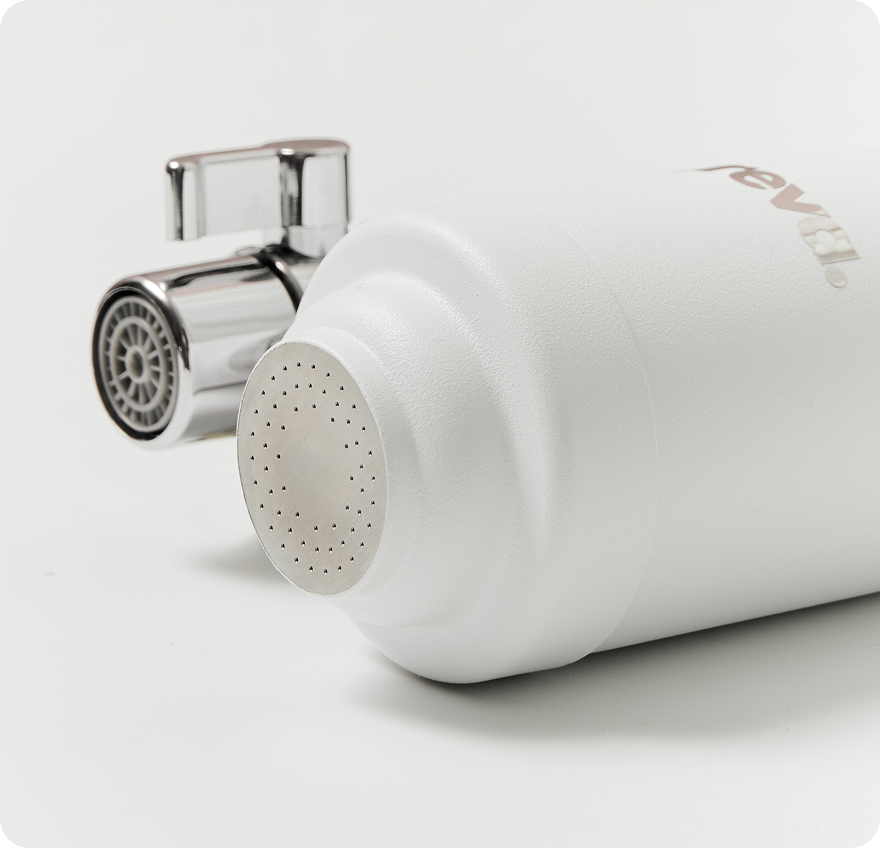Tap water is often considered safe to drink, but it still contains undesirable elements such as pesticides, heavy metals, and drug residues. According to a study by ANSES, more than 25% of drinking water sources in France contain traces of pesticides. Improving the quality of the water you consume every day is therefore becoming an important issue.
With so many filtration systems available, it can be difficult to make the right choice. From activated carbon filters to reverse osmosis filters, each option has its own advantages and disadvantages in terms of performance, cost, and ease of maintenance. But how do you know which water filter best suits your needs ?
In this article, we will guide you through the different solutions to help you choose the most suitable filter for your daily use.
What are the criteria for choosing your water filter?
Improving the quality of your tap water is essential for maintaining your daily well-being. But with so many options available, it's important to understand the criteria to consider when choosing the water filter that's best for you . Whether it's the contaminants present, the source of the water, or the filtration system used, each element plays a key role. Let's take a look at the points to consider to make the best choice.
Complete system for home water or tap filter?
The first step is to define your needs. If your priority is to obtain healthier water for consumption, whether for drinking or cooking, a filter installed directly on the kitchen faucet is a practical and economical solution. For broader protection, you can consider a complete filtration system for your entire home. Installed upstream of the meter, it protects not only the plumbing, but also all your equipment, reducing the presence of chlorine and limescale.
The tap filter is easier to install , but its role is limited to improving the quality of the water consumed, without impacting the rest of your installation. On the other hand, the latter is more precise than an upstream filter and therefore can prove to be a first solution to which you will eventually add an upstream filter to filter out coarser components.
Origin and quality of your water
Tap water quality varies considerably depending on where you live. For example, agricultural areas are often exposed to increased nitrate and pesticide concentrations, while industrial areas may have higher levels of heavy metals. To find out the water quality in your community, tools such as interactive maps and annual water quality reports are available.
Regardless of your location, your water likely contains undesirable elements such as microplastics, nitrites, pesticides, or drug residues. Therefore, tailoring a filtration solution to your specific water can improve its quality and taste.
Choose your water filter according to your use
Choosing a filter depends primarily on your specific needs. To better understand how a water filter works , check out our article on how a water filter works. If you're looking for a temporary, cost-effective solution to slightly improve the quality of your drinking water, a water filter pitcher may seem like an affordable option. However, it offers limited protection against contaminants and requires frequent maintenance to prevent bacterial growth.
For more comprehensive uses, such as filtering water used for drinking or cooking, a filter installed directly on the tap is a practical and efficient solution. This type of filter effectively improves water quality while being easy to maintain and durable. If you use rainwater for your home, or if your water supply comes from a groundwater well, a complete filtration system is recommended to protect your plumbing installations. Indeed, when water is collected at depth, even if the pumps are equipped with filtration strainers, it is not always fully suitable for being sent directly into your domestic network.
Reverse osmosis filters, on the other hand, are often considered for their ability to remove a wide range of contaminants. However, their high cost, significant water consumption, and impact on water structure make them less practical for everyday use. Additionally, this type of filter also removes beneficial minerals naturally present in water. Conversely, activated carbon or ceramic filters offer an excellent compromise between performance and simplicity. They are effective at filtering out elements such as chlorine, pesticides, and microplastics, while preserving essential minerals. Therefore, it is essential to choose a filter that is suitable for your daily use, taking into account performance, practicality, and cost.
Cost and maintenance of your water filters
The cost and maintenance of your water filter vary depending on the type of technology chosen. Here's an overview of the available options:

-
Reverse osmosis : This is the most efficient solution, but also the most expensive. Expect to pay between €600 and €3,000 depending on the model. Maintenance involves replacing the filters and membranes approximately every two years. Be sure to maintain your reverse osmosis system properly, especially if you go on vacation. This total does not include the costs incurred by water wasted during the filtration process.

-
Filter Carafe : This is the most economical option, with an average cost of €20 to €35 for the carafe itself. Replacement filters cost around €5 to €8 each and should be changed once a month depending on usage. While this solution is affordable, it remains the least effective in terms of filtration. You can only drink a small amount at a time, and let's be honest, few people change the filter, which ends up causing unwanted bacteria to grow.

-
Activated carbon and ceramic filter : Installed directly on the faucet, this type of filter offers effective filtration while being easy to maintain. At Pureva, for example, we guarantee our filters for 10 years thanks to the use of stainless steel, thus offering a durable and resistant solution. The initial and maintenance costs depend on the model chosen, but it remains more affordable than complex systems like reverse osmosis, while requiring less maintenance over time.
What are the most effective home water filters?
There are several types of home filters , each with its own features and benefits. Depending on your needs, some filters will be more suitable than others, as we mentioned above. Let's take a look at the best and most common options to help you make your choice.
Reverse osmosis water filters
Reverse osmosis filters are one of the most effective systems for removing contaminants such as nitrates, heavy metals, and PFAS. However, they are expensive, impractical, and offer a low flow rate. They require regular maintenance to maintain their performance. This type of system is often used when water quality is poor, cloudy, or overly acidic.
Installing a reverse osmosis system is more complex, usually under the sink with a faucet connection , which may require professional intervention to ensure proper operation.
Natural carbon filters
Natural carbon filters are particularly effective at improving the quality and taste of household water. They help remove chemical contaminants such as pesticides, chlorine, and other unwanted substances. Activated carbon works by capturing these pollutants thanks to its porous structure , which can retain particles up to 2 microns in diameter.
These affordable, easy-to-maintain filters, ideal for light chemical contamination, typically require a simple filter replacement every 3 to 6 months, depending on usage. They don't require large equipment or complex installation, making them a practical solution for households looking to improve their water quality without investing in an expensive filtration system.
This is the technology we have chosen to integrate into our universal system , compatible with nearly 95% of faucets. But that's not all...
Ceramic cartridges or balls
Used to filter bacteria , parasites and other particles, this type of water filter is ideal for ensuring optimal biological filtration . Thanks to their tiny pores, often 0.5 to 1 micron, these filters prevent the passage of harmful organisms while allowing water to circulate, to guarantee biologically pure water.
However, although ceramic is very effective against biological contaminants, it is unable to remove certain chemical pollutants such as heavy metals or drug residues . Therefore, the use of ceramic in combination with other systems, such as activated carbon, is recommended for more complete filtration.

What is the best solution for filtering tap water?
After having presented all these criteria and arguments in favor of the different technologies, we can, depending on your needs, determine which is the best solution for filtering tap water .
Which water filter should you choose for maximum efficiency?
For those looking for a practical and efficient system, filters that combine activated carbon and ceramic are ideal. They are distinguished by their ability to eliminate both chemicals and microorganisms. This combination provides complete filtration of domestic water , while preserving beneficial minerals. In addition to their effectiveness, these systems are affordable and easy to install, especially when mounted directly on the faucet. That's why at Pureva, we've chosen to promote this type of device, which is suitable for the widest range of users.
Why choose the Pureva water filter?
With our subscription system , Pureva simplifies filtering your tap water. You automatically receive your filter cartridges at home, preventing you from forgetting to change them. The stainless steel filter, guaranteed for 10 years, offers exceptional durability. Pureva offers you an effective, practical, ecological, and easy-to-use solution. No more need to carry liters of plastic bottled water every day. 😉

